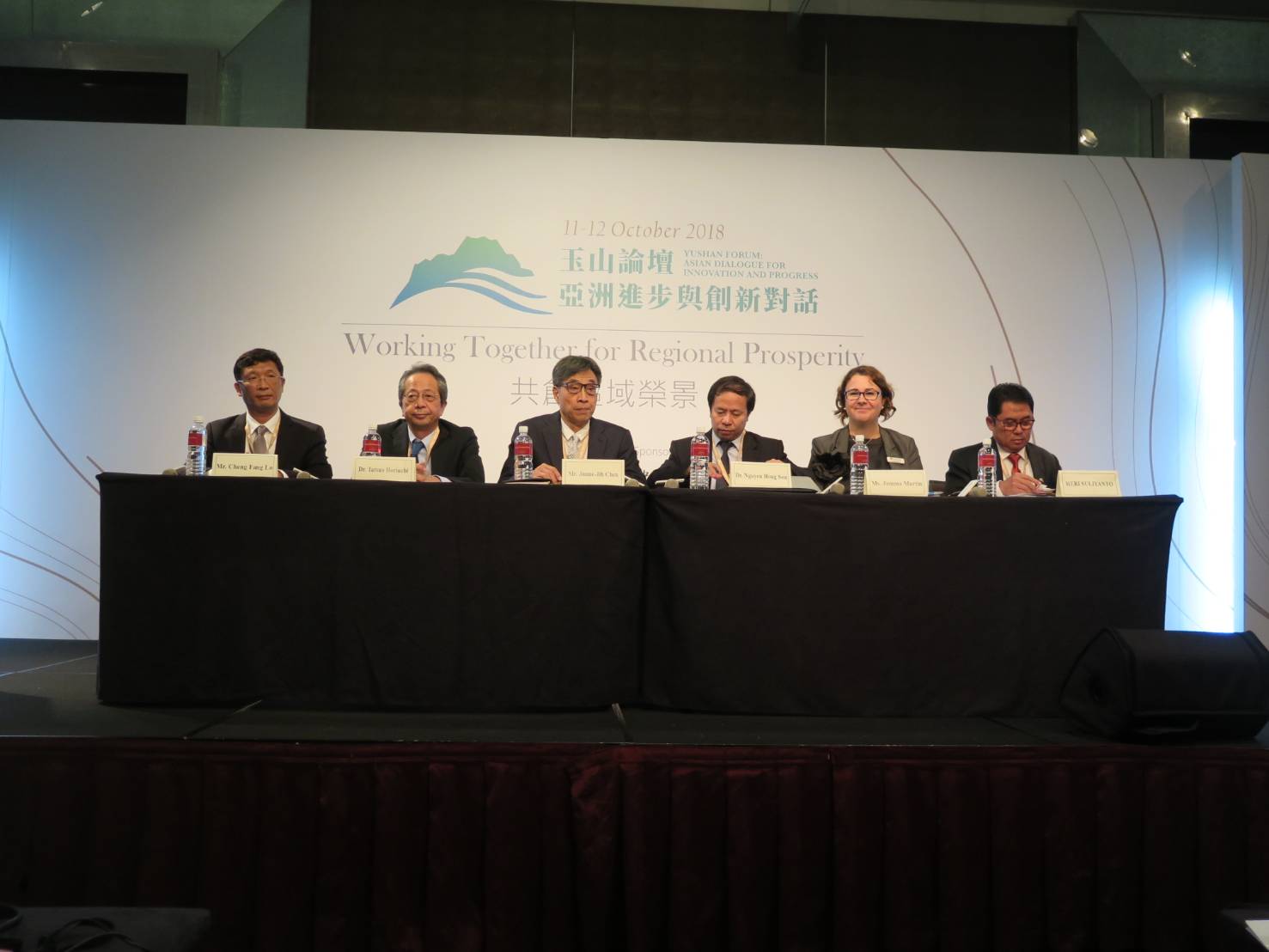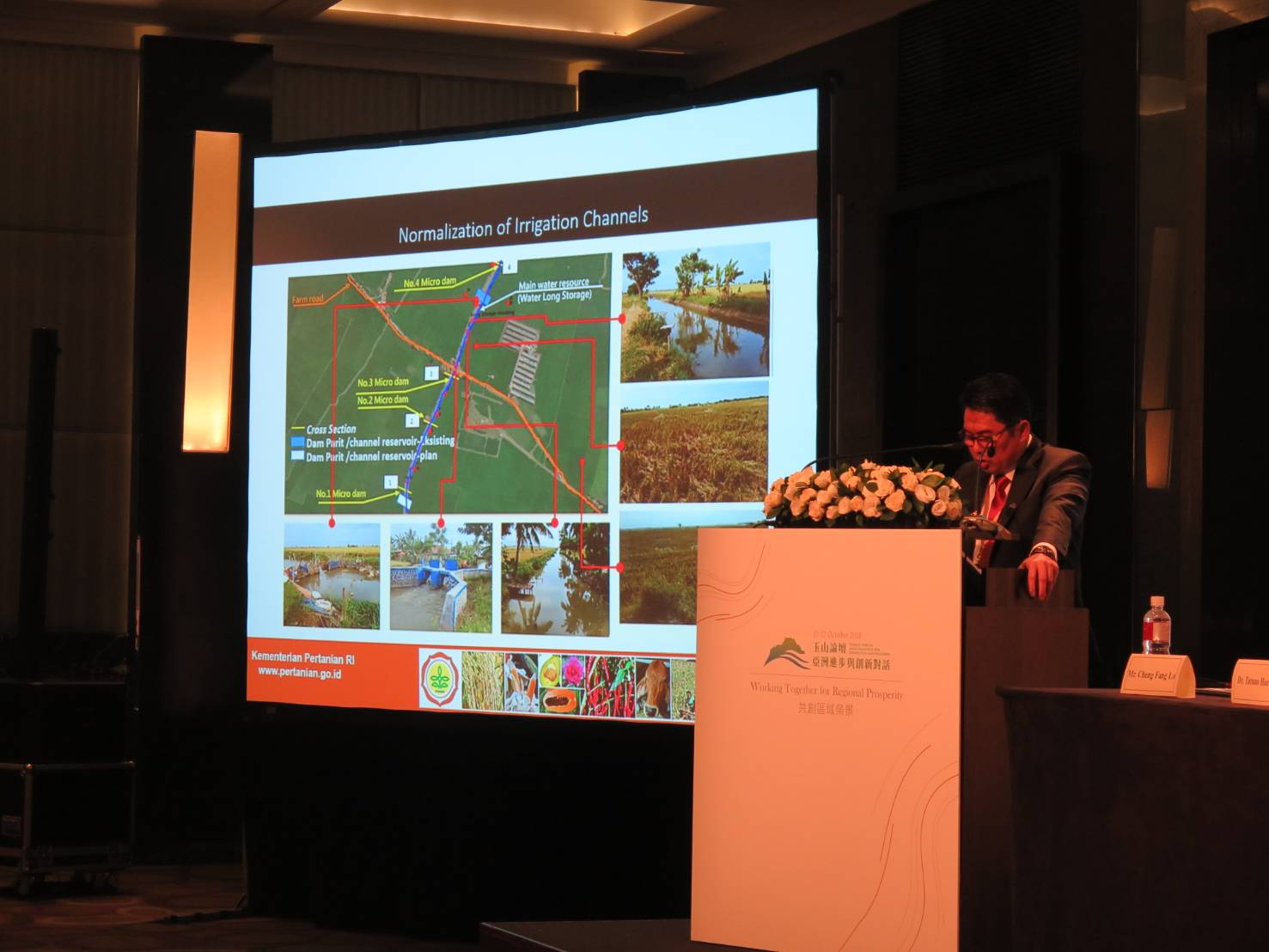News
Regional agriculture issues discussed at 2018 Yushan Forum: Taiwan will use its technology to develop collective regional prosperity with New Southbound countries
Today (October 11), the 2nd Yushan Forum opened. The Council of Agriculture (COA) specially invited government officials, academics, and business people from Indonesia, Vietnam, Australia, Japan, and Taiwan to an afternoon session entitled “Activating Regional Agriculture.” With more than 200 representatives of Taiwanese business, government, academia, and research institutes in attendance, we shared the cooperative direction of our country’s New Southbound Policy, and presented the successful results of interactions between Taiwan and New Southbound countries. We also discussed the future situation for international trade. This exciting and lively dialogue allowed those who attended the session to gain a more in-depth understanding of Taiwan’s Agricultural New Southbound Policy initiative, and generated quite a big response.
This year’s Yushan Forum was organized by the Taiwan-Asia Exchange Foundation. This large international conference, organized by the private sector with government participation, was held on October 11 and 12, 2018 at the Grand Hyatt Taipei. On the first day, the four major New Southbound Policy flagship plans for education, healthcare, agriculture, and economies were the main axes of the forum, and sessions on these subjects were held in cooperation with relevant government ministries. Of these, the COA proposed the theme of “From Technical to Institutional—Activating Comprehensive Cooperation on Agriculture” for its “Activating Regional Agriculture” session. Under this theme, there was discussion of an agreement between Taiwan and Indonesia to build a comprehensive agricultural demonstration zone, which is the first government-to-government (G2G) model for mutual benefit. With this as the starting point, there was sharing of experiences and exchanges on how various countries in the region can use agricultural technology exchange as a foundation, strengthen planning for and promotion of overseas investment, and develop diverse economic exchanges.
The COA states that for this session on agriculture, they specially invited Heri Suliyanto, director of the agricultural leadership and management traning center in the Agency of Agricultural Counseling and Human Resource Development of Indonesia’s Ministry of Agriculture, and Nguyen Hong San, head of the Vietnam Academy of Agricultural Science, to share their experiences on the construction of comprehensive agricultural demonstration zones. For these zones Taiwan provides technical guidance and demonstrates materials from Taiwan, improves the volume and quality of agriproducts produced in the partner country, and drives exports from Taiwanese industries such as agricultural materials and agricultural machinery. At the same time, in order to strengthen the distribution of Taiwanese agricultural investment overseas through exploration of models for overseas investment and discussion of the international situation, we also invited Jemma Martin, Agriculture Director of the Australia Office Taipei, and Tatsuo Horiuchi, president and CEO of Japan’s Farmind Corporation, to participate in the discussion. They separately gave their incisive insights into, and suggestions resulting from, Australia and Japan’s experience with agriproduct exports, trade, and investment. Finally, Dr. Cheng-fang Lo, founder of the Taiwanese firm Geosat Aerospace and Technology, explained the models and expectations for the promotion by that company of Smart Agriculture in New Southbound countries.
The COA points out that in July of 2017 the COA, in coordination with the New Southbound Policy, announced the “Regional Agricultural Development” flagship project, based on the vision of “encouraging collective regional agricultural prosperity and sustainable development based on mutual benefits for Taiwan and New Southbound countries, jointly creating a win-win situation.” Through the setting of objectives and action plans, under the precondition of “an overseas economic strategy based on people,” we have steadily promoted G2G cooperation platforms; we have also developed agribusinesses with international competitiveness to strengthen economic, trade, and investment relations. The value of trade in agriproducts between Taiwan and New Southbound policies was US$4.02 billion for the period from January through August of this year, an increase of 5.4% over the same period in 2017. During the same period, sales of fertilizer, pesticides, and agricultural machinery to New Southbound countries totaled US$120 million, an increase of 24.5% over the same period in 2017. It is clear that our measures have already injected vitality into agricultural economic dealings with New Southbound countries.
Through this year’s Yushan Forum, the COA, besides proving that Taiwan will continue to invest in R&D in agricultural technology in order to maintain our country’s agricultural technology comparative advantage, has also showed that we shall expand interactions with governments and academic institutions in New Southbound countries, and from there actively research an agricultural technology mechanism based on the idea “roots in Taiwan, worldwide distribution.” All the opinions about collective creation of regional prosperity received from various parties will be integrated into the major directions of, and be reference for, the COA’s foundational “pro-active agriculture,” as we continue to build even more competitive international economic and trade power.


